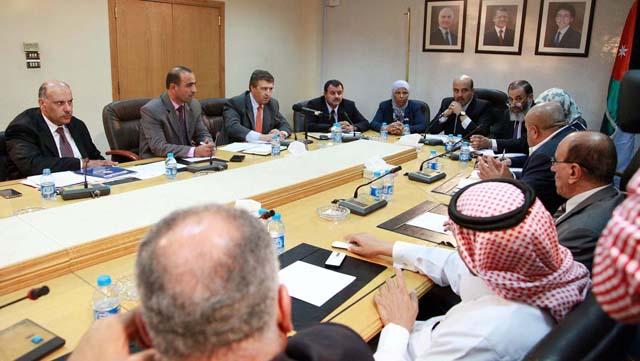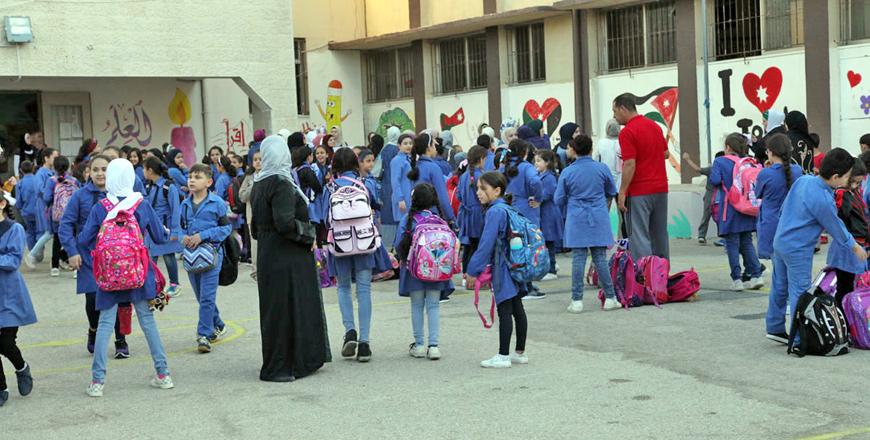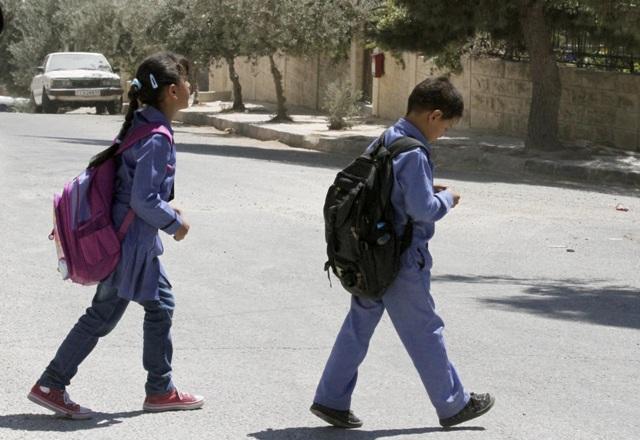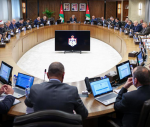You are here
Teachers’ strike splits educators as students seen main victims
By Omar Obeidat , Raed Omari - Aug 18,2014 - Last updated at Aug 18,2014

AMMAN — Criticism of the nationwide strike of the Jordan Teachers Association (JTA) comes from among educators themselves this time as some have pledged not to participate in the "politicised" work stoppage.
Interviewed by The Jordan Times on Monday, several teachers from various districts said the strike, which began on Sunday, "came to serve a political agenda", noting that they will be there to give lessons to students when classes start next Sunday.
"It has become clear that the strike is meant for political purposes," charged Mohammad Yousef, an English language teacher, adding: "We have legitimate demands but they should not be pressed for this way."
Citing the timing of the strike, Yousef said the "Muslim Brotherhood-dominated JTA is using students as a bargaining chip to press the state for concessions to serve political purposes”.
The JTA could have resorted to dialogue if improving teachers' conditions were their major concern, he said, adding: "We have suspicions over the JTA's intentions: Why the escalation and why now?" Yousef, from Irbid's third educational directorate, said.
"This is what I believe and what many of my colleagues believe. We are determined to give lessons to students when they come to schools next week," he said.
Ahmad Zu’bi, from Irbid’s Bani Kinanah District, said what is being witnessed now in schools is not a strike. “The situation will be clear when students show up next week.”
Although many teachers are taking part in the strike, Zu’bi said there is a considerable number of other teachers who oppose the move, seeing it as “politicised” and a threat to national security.
“Personally, I am torn between two dilemmas: abiding by the association’s order to observe the strike and caring for students’ interests. It is hard to tell which to follow but when the moment of truth comes, I think I would go for students’ interests,” he said.
A teacher from Amman who preferred to remain unnamed expressed hope that the JTA would reach an agreement with authorities before the start of the academic year.
He also said that there are as many teachers opposing the strike as there are supporters. “It has to be made clear that it is a strike of the JTA but not of all teachers.”
Linda Salem, from the education department of Bani Kinanah, said she refuses to take part in the work stoppage because as a mother she wants her children to start the school season as usual.
“I have three kids in school and I don’t want to see them left on the street,” she added, indicating that the majority of her colleagues prefer to stay away from politics and just teach their students.
Muath Mohammad Al Nadi, a teacher from Irbid, accused the JTA council of pursuing political agendas he does not want to be part of.
“The council is dominated by Islamists and I’m not a supporter of their policies,” Nadi said, pointing out that his eldest son will be in the first grade this semester.
“I’m speaking as a teacher and as a parent who wants to see students start a normal school life,” he added.
Members of the JTA on Sunday started an open-ended strike amidst parliamentary efforts to resolve the issue one week before students return to school.
The association issued a statement on Sunday reporting that the majority of teachers around Jordan have joined the strike.
The JTA wants the government to amend the civil service by-law, improve teachers’ health insurance, draft laws to protect them, offer them more financial benefits, endorse the private schools by-law, and refer the education social security fund case to the Anti-Corruption Commission.
On more than one occasion, Prime Minister Abdullah Ensour criticised the JTA for planning the strike, accusing them of playing politics and taking students as hostages to their demands.
Related Articles
Members of the Jordan Teachers Association (JTA) on Sunday started an open-ended strike amidst parliamentary efforts to resolve the issue one week before students return to school.
AMMAN — The Ministry of Education said that classes were resumed on Tuesday in 1,014 public schools across the Kingdom, "significantly" brea
Around 1.8 million students are supposed to start the 2014/15 scholastic year Sunday as the Jordan Teachers Association (JTA) and the Ministry of Education reached a dead end in their dispute.


















